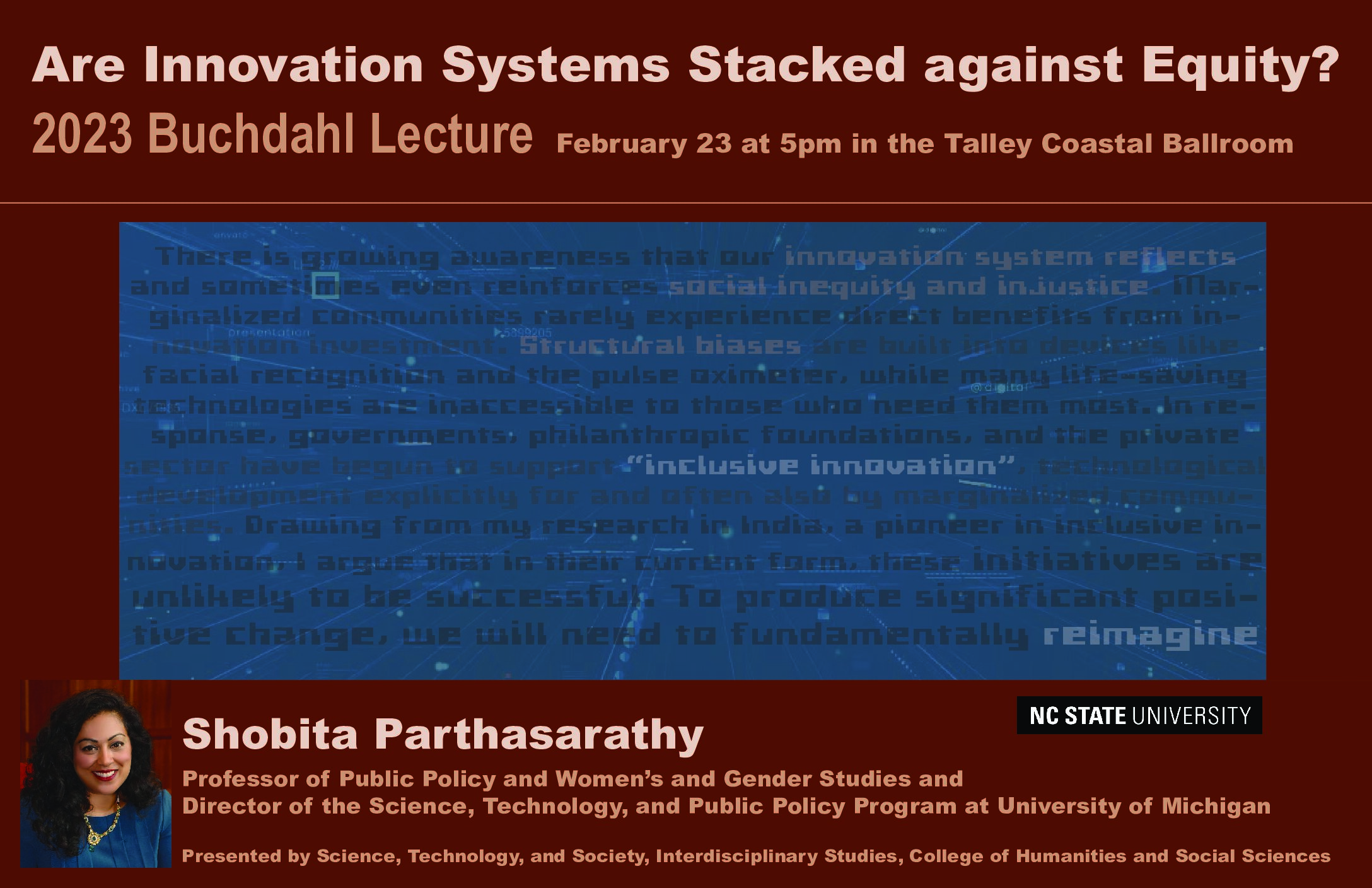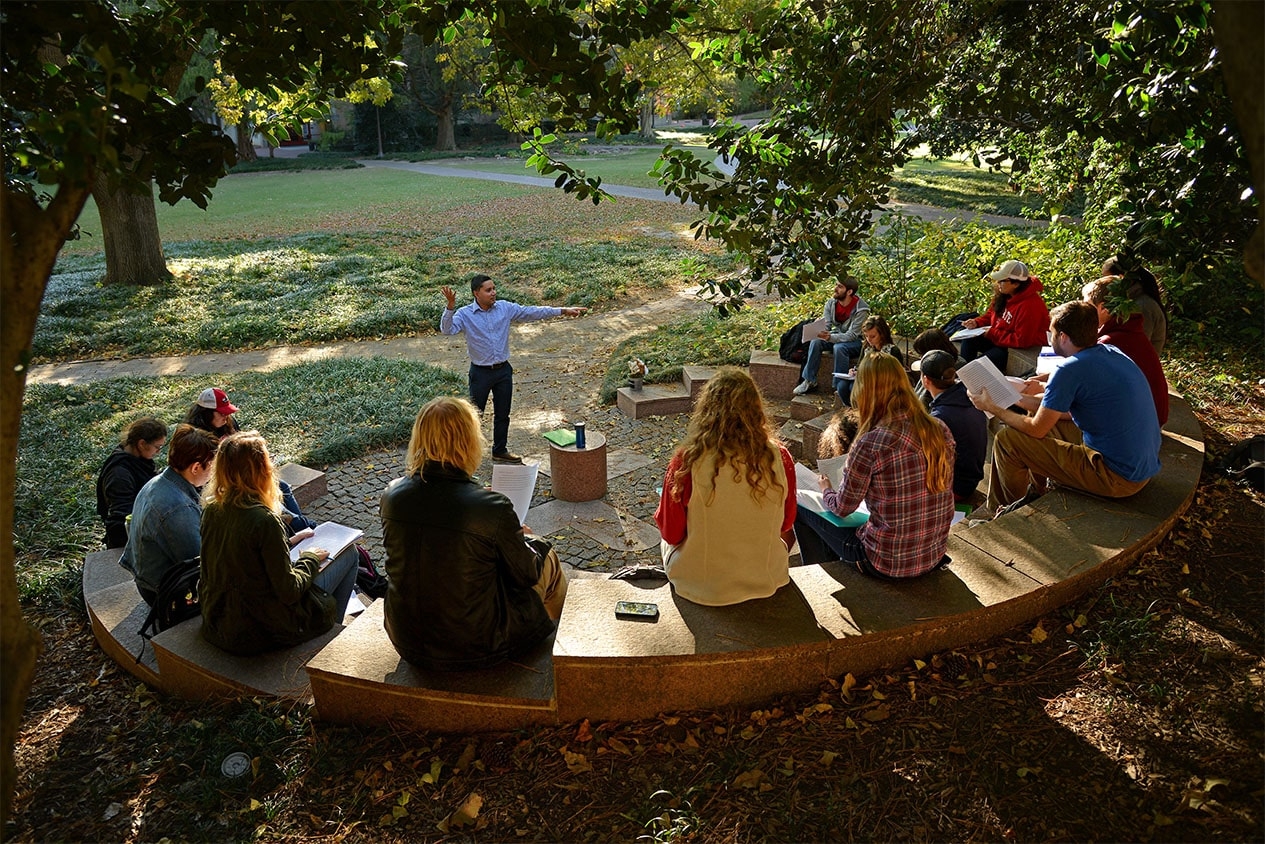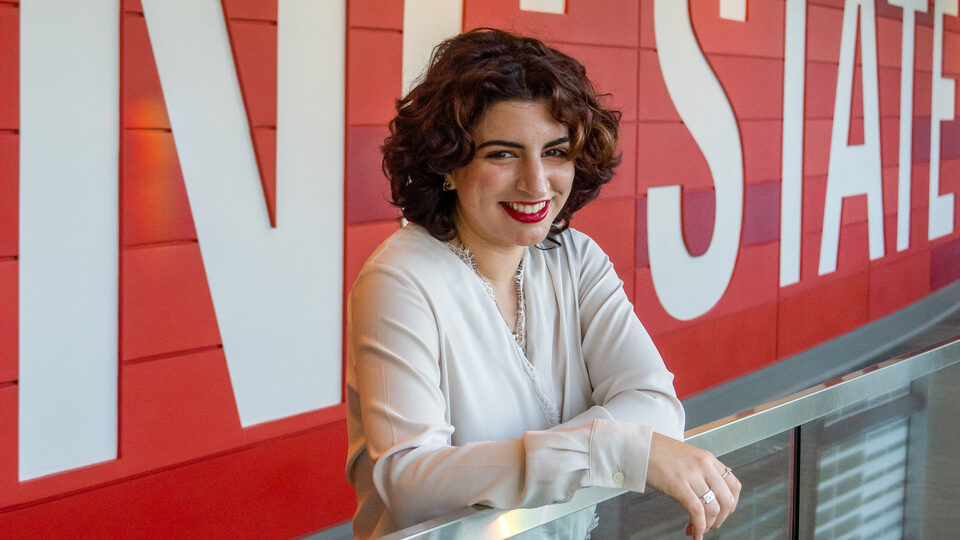Are innovation systems stacked against equity?
2023 Buchdahl Lecture

There is growing awareness that our innovation system reflects and sometimes even reinforces social inequity and injustice. Marginalized communities rarely experience direct benefits from innovation investment. Structural biases are built into devices like facial recognition and the pulse oximeter, while many life-saving technologies are inaccessible to those who need them most. In response, governments, philanthropic foundations, and the private sector have begun to support “inclusive innovation”, technological development explicitly for—and often also by—marginalized communities. Drawing from my research in India, a pioneer in inclusive innovation, I argue that in their current form, these initiatives are unlikely to be successful. To produce significant positive change, we will need to fundamentally reimagine our approach to innovation, innovators, and technical expertise.
Shobita Parthasarathy is Professor of Public Policy and Women’s and Gender Studies, and co-founder and Director of the Science, Technology, and Public Policy Program at University of Michigan. Her research examines the political economy of innovation and innovation policy focusing on equity and justice, and the politics of knowledge and expertise in public policymaking, often in cross-national perspective. She is the author of numerous articles and two books: Building Genetic Medicine: Breast Cancer, Technology, and the Comparative Politics of Health Care (MIT Press, 2007) and Patent Politics: Life Forms, Markets, and the Public Interest in the United States and Europe (University of Chicago Press, 2017). The former influenced the 2013 US Supreme Court case that determined human genes were not patentable; the latter won the 2018 Robert K. Merton Award from the American Sociological Association. Her current book project examines the history and consequences of “tech for good” initiatives around the world. Parthasarathy is committed to translating scholarly insights to public and policy audiences; in 2021, for example, she testified twice in front of the US Congress on equity in energy innovation. She has written for Nature, The New York Times, Slate, and Issues in Science and Technology among other publications, and co-hosts The Received Wisdom podcast about the intersections of science, technology, policy, and society. She tweets @ShobitaP.


